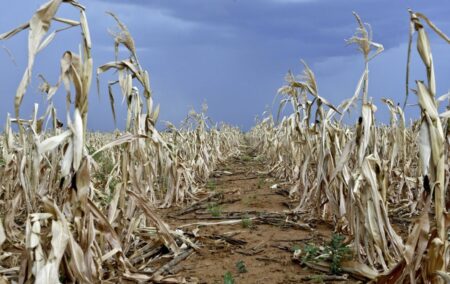The period between January and the end of March 2024 has been one of the two wettest seasons in four decades.
Although the drought is unlikely to severely affect most food prices, it has hit farmers hard.
For example, Piet Mothepu, who farms between Koppies and Sasolburg in the Free State, has lost almost his entire maize crop.
‘My white maize cost me R1.8m for 150 hectares. The expected yield was five tonnes per hectare. That comes to 750 tonnes. With the current price of white maize at R5,200 a tonne, I would have received R3.9m. All of that is lost’, Mothepu told the Sunday Times.
He still has soybeans that can be harvested.
‘I planted 200ha at R9,000 per hectare. Our total costs were R1.8m. The expected yield was 1.5 tonnes per hectare. I hoped to harvest 300 tonnes. At today’s prices, that’s a revenue of R2.5m. As it stands, I hope to get R1.7m for the soya that survived.’
Climatologist Johan Malherbe said: ‘If you only take the period December 1 to March 31, this season was one of the two wettest since 1980. But if you specifically look at the period January 15 to March 31 — a time that is very important for maize production — the picture changes dramatically. For this period the current year is one of the two driest since 1980’. Most of the rain for this period fell in December.
Theo de Jager, the president of the Southern African Agricultural Initiative, believes urgent government intervention is required.
However, Wandile Sihlobo, Chief Economist of the Agricultural Business Chamber of South Africa, believes governmental intervention is not necessarily the answer, though he isn’t against government intervention.

